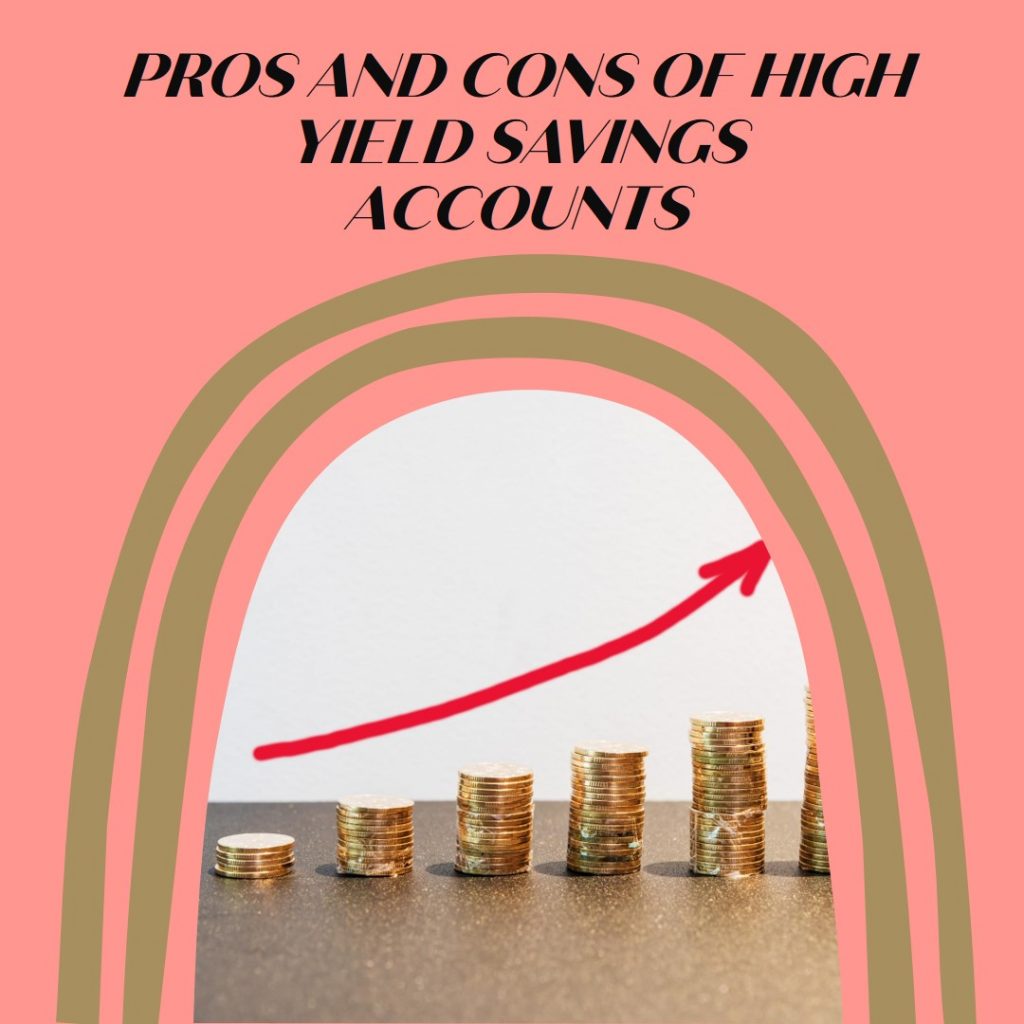A high-yield savings account is a type of savings account that offers a higher interest rate compared to traditional savings accounts. These accounts are typically offered by online banks and financial institutions. High yield savings accounts vs bonds http://dorianfinance.com/bonds-vs-high-yield-savings-account
Here’s a basic overview of high-yield savings accounts:
1. Higher Interest Rates:
High-yield savings accounts offer a higher interest rate compared to regular savings accounts, although rates can vary.
2. Online Accessibility:
Many high-yield savings accounts are offered by online banks, which means you manage your account through a website or mobile app.
3. FDIC Insurance:
Like traditional savings accounts, high-yield savings accounts are usually FDIC-insured up to the legal limit (currently $250,000 per depositor).
4. No Minimum Balance Requirements:
High-yield savings accounts often have no or low minimum balance requirements, making them accessible for a wide range of savers.
5. Easy Access to Funds:
Most high-yield savings accounts allow you to easily access your funds through electronic transfers, ACH transfers, and sometimes even through ATMs.
6. No or Low Fees:
Many high-yield savings accounts have little to no fees, helping you keep more of your earned interest.
7. Interest Compounding:
Interest is usually compounded on a monthly basis, meaning you earn interest on both your initial deposit and the interest that has already been added to your account.
8. Purpose of High-Yield Savings Accounts:
Emergency Fund: Often recommended for holding an emergency fund due to their accessibility and safety.
Short-Term Savings: Useful for saving for short-term goals like a vacation or down payment.
9. Factors to Consider:
Interest Rates: Compare the interest rates offered by different banks to get the best return on your savings.
Fees: Check for any maintenance fees or transaction fees associated with the account.
Access to ATMs: Some high-yield savings accounts provide access to a network of ATMs for easy cash withdrawals.
10. Consideration of Inflation
While high-yield savings accounts provide better returns than traditional savings accounts, the interest rates may not always keep up with inflation.
11. Monitoring Interest Rate Changes
Interest rates on high-yield savings accounts can fluctuate, so it’s a good idea to monitor changes in rates over time.
12. Alternatives
Another option is EFT http://dorianfinance.com/what-is-an-etf-exchange-traded-fund
Consider other investment options (such as certificates of deposit or investment accounts) if you are willing to accept a slightly higher level of risk for potentially higher returns.
13. Shop Around
Research and compare offerings from different banks to find the best high-yield savings account that meets your needs.
High-yield savings accounts can be a valuable tool for short-term savings goals and for keeping your emergency fund easily accessible. However, for long-term goals, you might explore other investment options that offer potentially higher returns. Always read the terms and conditions of any account carefully before opening it.
High Yield Savings Accounts (HYSAs) can be a good option for individuals looking to earn higher interest on their savings compared to traditional savings accounts.

Here are some pros and cons:
Pros:
- Higher Interest Rates: HYSAs generally offer higher interest rates compared to regular savings accounts. This means your money can grow more quickly over time.
- Easy Access to Funds: Unlike some other types of investments, you can access your money easily and quickly from a High Yield Savings Account. There are usually no withdrawal restrictions or penalties.
- Safety and Security: HYSAs are typically offered by reputable banks, and deposits are often insured by government agencies (e.g., FDIC in the U.S.), providing a level of security for your savings.
- No Market Risk: Unlike investments in stocks or bonds, HYSAs are not subject to market fluctuations. Your interest is generally not affected by changes in the financial markets.
Cons:
- Lower Returns Compared to Investments: While HYSAs offer higher interest rates than regular savings accounts, the returns are still lower compared to potential returns from riskier investments like stocks. A good alternatives is index funds http://dorianfinance.com/index-funds-101
- Inflation Risk: The interest earned in a High Yield Savings Account might not always keep pace with inflation. This means that the purchasing power of your money may decrease over time.
- Minimum Balance Requirements: Some HYSAs may have minimum balance requirements to qualify for the higher interest rates. Falling below the minimum balance could result in lower interest rates or fees. Like I said that many HYSA don’t have any minimum but many do.
- Interest Rate Fluctuations: Interest rates on HYSAs can change based on market conditions and the policies of the bank. Your interest earnings may vary over time.
- Tax Implications: Interest earned on HYSAs is generally taxable. Depending on your tax bracket, this could impact your overall return.
It’s important to carefully consider your financial goals, risk tolerance, and liquidity needs before deciding on the type of savings account or investment that suits you best.











One thought on “High Yield Savings Account”